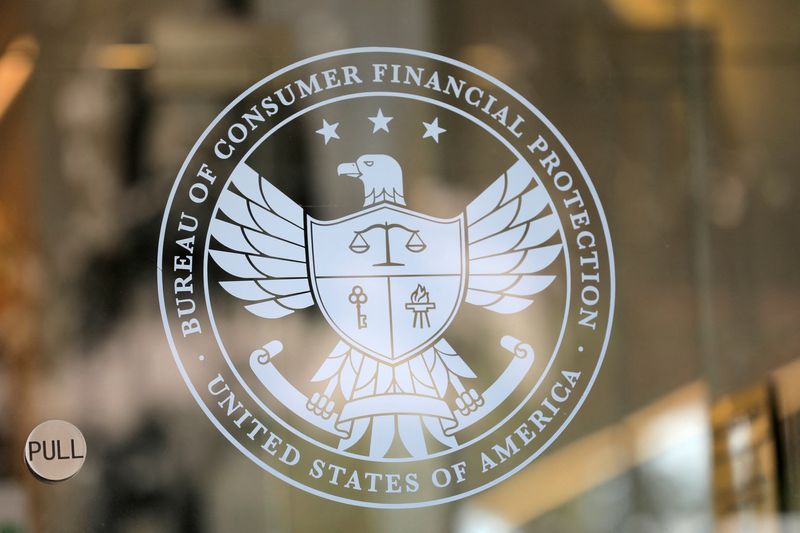By Nate Raymond
(Reuters) -A federal appeals court ruled on Wednesday that the U.S. Consumer Financial Protection Bureau's funding apparatus is unconstitutional, faulting a system Democrats designed to insulate the agency from requiring congressional appropriations.
The New Orleans-based 5th U.S. Circuit Court of Appeals ruled that the CFPB's independent funding through the Federal Reserve rather than budgets passed by Congress violated the separation of powers principles in the U.S. Constitution.
That ruling, by a panel of three judges appointed by then-President Donald Trump, a Republican, in the process vacated a 2017 regulation the agency adopted aimed at combating "unfair and abusive" practices in the payday lending industry.
The Community Financial Services Association of America sued in 2018 to challenge the rule, which barred lenders from making a new attempt to withdraw funds from an account where two consecutive attempts had failed unless consumers consented.
"Even among self-funded agencies, the Bureau is unique," U.S. Circuit Judge Cory Wilson wrote. "The Bureau's perpetual self-directed, double-insulated funding structure goes a significant step further than that enjoyed by the other agencies on offer."
A CFPB spokesperson said there was "nothing novel or unusual about Congress's decision to fund the CFPB outside of annual spending bills."
The bureau could ask the full 5th Circuit to reconsider the case or take it to the U.S. Supreme Court.
Multiple other courts have deemed the CFPB's funding constitutional, a point the 5th Circuit acknowledged but disagreed with.
The ruling marked the latest in a series of legal challenges to the CFPB, which Congress created in 2010 through the passage of the Dodd-Frank Act during Democrat Barack Obama's presidency, in response to the 2008 financial crisis.

Republicans have long opposed the agency. The Supreme Court in 2020 ruled in another case that the protection Congress originally afforded the CFPB director, who could only be fired for cause, was unconstitutional.
"Extreme right-wing judges are throwing into question every rule the CFPB enforces to protect consumers and businesses alike," U.S. Senator Elizabeth Warren, the Massachusetts Democrat who proposed the CFPB's creation, wrote on Twitter.